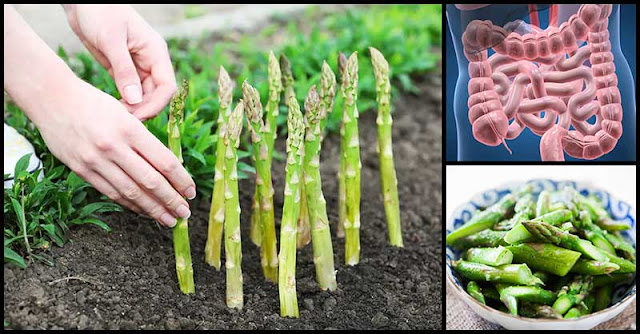Asparagus is a vegetable that comes in a variety of colors – it can either be green, purple, or white. This spring veggie that is a member of the lily family is low in calories and is packed with essential vitamins, minerals, and antioxidants. It is a very good source of vitamins A, C, E and K, fiber, and folate, as well as chromium, a trace mineral that improves the ability of insulin to transport glucose from the bloodstream into cells.
Asparagus And Digestive Health
Asparagus is loaded with dietary fiber that is beneficial to our digestive health. Just half a cup of it contains 1.8 grams of fiber, which is 7% of our daily needs.
According to studies, its high levels of insoluble fiber add bulk to stool and support regular bowel movements. Due to this, it can help speed up the movement and processing of waste, thus, helping us prevent gastrointestinal blockage and constipation or reduced bowel movements as well as lowering one’s risk of developing small folds and hemorrhoids in the colon.
Aside from this, asparagus also contains some amounts of soluble fiber, which dissolves in water and forms a gel-like substance in the digestive tract. This type of fiber blocks fats that would otherwise be digested and absorbed by the body, helps lower cholesterol levels or the amount of free cholesterol in the blood, feeds good gut bacteria, and even reduce the risk of heart diseases and circulatory conditions. Furthermore, soluble fiber also feeds the friendly bacteria in the gut, such as Bifidobacteria and Lactobacillus which play a role in strengthening the immune system and producing essential nutrients like vitamins B12 and K2.
Experts believed that by adding asparagus into our diet, we will be able to feel full longer after a meal and lower our chances of having many diseases including diabetes, cardiovascular diseases, obesity, metabolic syndrome, and other illnesses.
Adding Asparagus Into Our Daily Diet
We can boil, grill, steam, roast or sauté asparagus. Add them into various dishes like stir-fries, omelets, pasta, salads, and frittatas. This veggie also makes an excellent side dish.









